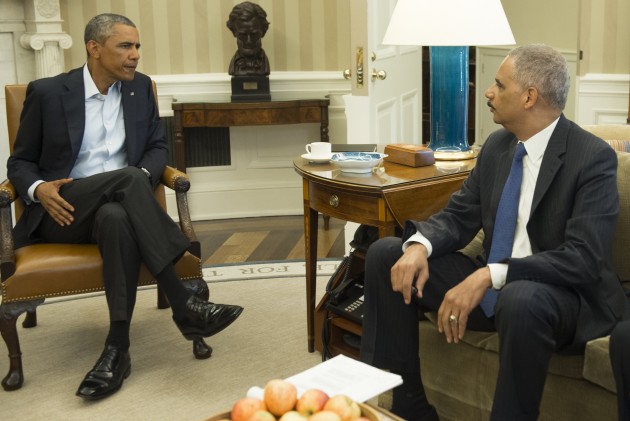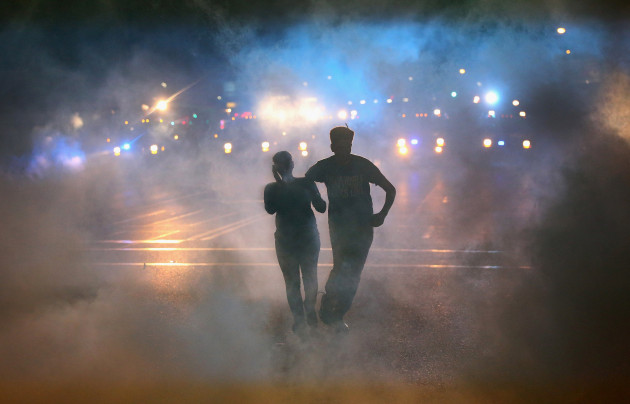
When President Obama addressed the nation Monday on crises in war-torn Iraq and Ferguson, Mo., millions likely waited with anticipation for inspiring and defining words.
Across the country, the attention was focused not on the Middle East but on what the president would have to say about Ferguson, which has swirled in turmoil since police officer Darren Wilson shot and killed 18-year-old Michael Brown 10 days ago.
Some might have thought the president would deliver a speech like those of yesteryear, the kind of remarkable insight then-Sen. Obama delivered in 2008, when he distanced himself from the Rev. Jeremiah Wright and gave a thorough presentation of race relations in the United States. That speech helped right his presidential campaign and cement his reputation as an orator.
But the campaigner full of hope has yielded to a president grounded in reality. As much as he may have wanted to, he steered clear of indicting the justice system.
As writer David Swerdlick has noted, President Obama must “represent the American system … with all its attendant flaws.”
So after days of criticism that he has been absent from the discussion on Ferguson — where police have pointed their guns at even law-abiding protestors and lobbed tear gas at their feet — Obama seemed to step cautiously into the fray on Monday.

Appearing tired and resigned, the president announced that the Justice Department has opened an investigation into the death of Brown and that Attorney General Eric Holder will arrive in Ferguson Wednesday to meet with investigators and members of the community.
Though the president spoke to the tension in Missouri, where people are outraged that another young black man is dead – and that authorities have yet to charge the officer – gone was the sparkling delivery of days past.
His muted delivery sparked complaints that the president is out of touch with black people. Still, the president spoke to a central truth:
“In too many communities around the country a gulf of mistrust exists between the local community and local law enforcement,” Obama said. “Too many young men of color are left behind and seen as objects of fear.”
Anyone who longed to hear the president use his bully pulpit to speak forcefully on police abuses, or deliver a soaring speech that appeals to the nation’s better instincts, was sorely disappointed.
Trying to avoid any impression that he is “putting my thumb on the scale one way or the other,” Obama urged people in Ferguson not to give in to anger while the justice system inches forward.
Although the president said that constitutional rights to speak freely, to assemble and to report in the press “must be vigilantly safeguarded” and that there is “no excuse for excessive force by police,” his relatively guarded comments may indicate he is not able to bridge the black-white divide as so many of his supporters want him to.
Although the president asked Americans “to seek our shared humanity that’s laid bare by this moment,” the question for many is when there will be a shared, and equal, sense of justice.
